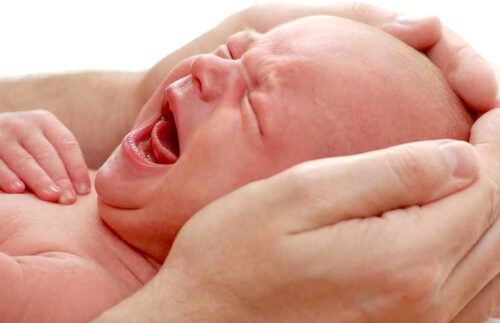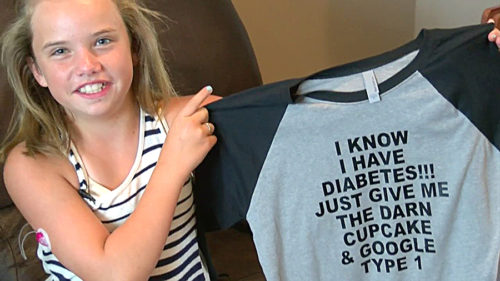Clinical
Conditions
- ADHD and Puberty – Part Two
- ADHD, ADD, HK, ADHK, LDHK, MBD, Hyperactive, “Slow”
- ADHD, Hyperactivity: Don’t JUST Take My Word For It
- ADHD: Treatment Followup – Lifelong Learning
- Amblyopia and Developmental Dysplasia of the Hip
- As Much As You Want To Know About Autism – FIVE Videos
- Autism: Autistic Concert Pianist
- Best Treatment For ADHD: Success In Something
- Childhood Diabetes and a New Medicine – Part 1
- Childhood Diabetes and a New Medicine – Part 2
- Childhood Diabetes Update
- Childhood Diabetes: Intro/Index
- Hyperactivity and Puberty – “ADHD on Testosterone”
- Hyperactivity Treatment: Cognitive Training, Medication or Both
- Hyperactivity Treatment: Is There ANYTHING That Really Works?
- Hyperactivity Treatment: What Really Works… Really
- Hyperactivity: First, The Diagnosis
- Hyperactivity: The Boy or Girl – The Patient
- Leg Pain on One Side in Children – Perthes Disease
- New Guidelines: Autism, Flu and ACL Tears
- Night Terrors and Nightmares
- Parenting ADHD: Errors of commission and omission
- Parenting: The “C” Word—Colic
- Speech “Non-fluency” – Stammering, Hesitancy, Delay, and Stuttering in children.
- The Charles Bonnett Syndrome: An Under-reported Phenomenon
- To Understand Autism
- What We Know About Autism
Doctors
- #40 Lawrence (Larry) Einhorn (1942-)
- 10 Medical Breakthroughs Unaccepted At First – Part One
- 10 Medical Breakthroughs Unaccepted At First – Part Three
- 10 Medical Breakthroughs Unaccepted At First – Part Two
- 15 Accidental Medical Discoveries – Part II
- 15 Accidental Medical Discoveries – Part III
- 50 Influential Docs in History: Nikolay Ivanovich Pirogov (1810-1881)
- Accidental Medical Discoveries – New Series
- Carlos J. R. Chagas – Malaria, American Trypanosomiasis, Pneumocystis
- Charles D. Kelman – Revolutionized Care of Cataracts
- Cicely D. Williams
- Communication With Your Doctor – when things don’t seem to be going right
- Cost Effective Medicine – why can’t we seem to find it?
- Dame Cicely Saunders – Nurse, Doctor and Founder of Modern Hospice
- Doctor Helen Brooke Taussig – World Renowned Cardiologist
- Doctor Henry Gray (1827-1861) – Anatomist, Author, Devoted Uncle
- E. Donnall Thomas, Joseph Murray-Most Influential Doctors
- Elisabeth Kübler-Ross
- Elizabeth Blackwell
- George Papanicolaou: Cytopathology, Cancer
- Grandma’s Who Haven’t Seen Measles
- James Parkinson: Social Activist and Advocate, Parkinson’s Disease and Palentology
- John Snow: Water Pumps, Cholera and Epidemiology
- Joseph Kirsner: Colon Cancer, IBS, Educator, Doctor
- Mahmut Gazi Yaşargil: Micro-Surgery, Neurologic Pioneer
- Medical Breakthroughs, Unaccepted, Rejected and Attacked (at first)
- Most Influential Doctor: David L. Sackett – Evidence-based Medicine
- Obscure Medical Terms
- Robert Koch: Modern Bacteriology
- Stanley Dudrick: Total Parenteral Nutrition
- Stanley Prusiner: Neurodegenerative Diseases
- Top 50 Most Influencial Doctors of All Time: Intro/Index
- Veterinarians V Physicians
- Victor McKusick: Medical Genetics
- Virginia Apgar: Blue Babies
- Watson, Crick, DNA, Nobel Prize
- When Doctors Don’t Do A Good Physical Exam – Patients Loose
- William Harvey – Discovery of Circulation
- Yogi Berra’s Tips For Practicing Medicine and Parenthood
- Zora Janžekovič – Pediatric Burn Pioneer
Illness
- 10 Travel Diseases to Consider – Part 2
- 10 Travel Diseases to Consider Before and After the Trip
- 2014: New Medical Guidelines Intro/Index
- Adolescent Acne – diagnosis and treatment methods
- Alcohol Intoxication in Children
- Allergy (atopy) in infants, children and adolescents
- Allergy: Spring Hay Fever and Otherwise
- Appendicitis
- Attention Deficit Hyperactive Disorder (ADHD) Series: Intro/Index
- Autism: Autistic Concert Pianist
- Back To School: Series Intro/Index
- Bed Wetting (Enuresis) – 1
- Bed Wetting (Enuresis) — Part 2
- Bug Bites Series: Intro/Index
- Cardiac Arrest: Commotio Cordis – Prevention, Return To Play
- Cardiac Arrest: Commotio Cordis – Treatment and Prevention
- Child Cardiac Arrest: Intro/Index
- Child Diseases Parents Should All Know About – Part 1
- Child Diseases Parents Should All Know About – Part 2
- Child Diseases Parents Should All Know About – Part 3
- Child Diseases Parents Should All Know About – Part 4
- Child Diseases Parents Should Know – Part 10
- Child Diseases Parents Should Know – Part 5
- Child Diseases Parents Should Know – Part 6
- Child Diseases Parents Should Know – Part 7
- Child Diseases Parents Should Know – Part 8
- Childhood Concussion Series: Intro/Index
- Childhood Rashes and Numbered Diseases: Intro/Index
- Children’s Back To School Medical Problems – Part 1
- Children’s Back To School Medical Problems – Part 2
- Children’s Bacterial Skin Infections
- Common Foreign Bodies Found In Children and Teens
- Common Pediatric Recreation and Sport’s Injuries – Part Two
- Common Pediatric Sports and Recreational Injuries – Fractures
- Conjunctivitis (Pink Eye)
- Constipation and Soiling in Children
- Difference Between Flu and Colds
- Diseases All Parents Should Know Series: Intro/Index
- Diseases Parents Should Know, 9 – Flu, Impetigo, Ringworm
- Drugs and Breast Milk – Alcohol Withdrawal
- Five Things You Should Know About Concussion and Contact Sports
- Head Injury in Children
- Head Lice and Tea Tree Oil
- Heat Illness In Children: Heat Stroke, Rash, Exhaustion
- Hospitalized Newborns – One
- How to Take A Temperature: Child
- Infant Colic
- Kawasaki Disease: A Parent’s Guide
- Keeping Sick Kids Home from School or Daycare
- Leg Cramps in Children
- Marijuana Series: Intro/Index
- Marijuana: Test What You Know
- Medical Marijuana
- Medical Marijuana – What, If Anything, Is it Good For?
- Medicine: Do Nothing Whenever Possible
- Meningitis In Children
- Migraine Headache in Children
- Mosquito Illnesses – Zika, Dengue and Others
- New Concussion Biomarker Possible For Children’s Head Injuries
- New Guidelines: Autism, Flu and ACL Tears
- New Kids Health Guidelines In 2014
- Numbered Diseases of Childhood: FIFTH Disease – Erythema Infectiosum
- Numbered Diseases of Childhood: FIRST Disease – Measles
- Numbered Diseases of Childhood: FOURTH Disease – Filatov-Dukes’ Disease
- Numbered Diseases of Childhood: Rashes
- Numbered Diseases of Childhood: SECOND Disease – Scarlet Fever
- Numbered Diseases of Childhood: SIXTH Disease – Roseola
- Numbered Diseases of Childhood: THIRD Disease – Rubella
- Otitis Externa: Swimmer’s Ear, More Than An Annoyance
- Parenting: Circumcision
- Parenting: Fever is Your Friend
- Parenting: Frequent Illnesses – related to number of past and present exposures
- Parenting: How To Give Medicine To A Child
- Parenting: The “C” Word—Colic
- Parenting: The most common cause of feeling tired is being tired
- Poison Ivy, Oak and Sumac in Children
- Power Lawn Mower Injuries in Children
- Respiratory Hazards of Wood Stoves
- Scabies “Seven Year Itch” – a Comeback in Children
- Scabies in Children
- Spinal Taps in Children
- Stings and Bites in Children
- Sudden Cardiac Death in Child Athletes
- Summer Childhood Illnesses and Injuries – Part 2
- Sunburn in Infants, Children and Adolescents
- Ten Travel Diseases: Intro/Index
- Tonsillectomy – part two
- Tonsillectomy – Risks and Benefits
- Torn Anterior Cruciate Ligament (ACL) – Lachman Test
- Treating Children’s and Teen’s Colds
- Treating Cough in Infants, Children and Teens
- Treating Fever in Infants, Children and Teens
- Urinary Tract Infections in Children
- What’s Eating You? Bedbugs, Mites and Lice
- What’s Eating You? Ticks and Fleas
- Why Is Meningitis So Dangerous?
Parenting
- A Good Book is Like A Secret Door
- Advice to Ignore, Things to Remember and Stuff Not To Stress About – Part 3
- Am I Ready To Have Sex?
- Celine Dion and Josh Groban
- Children’s Ability To Read
- Children’s Self Esteem
- Choose Your Battles With Teens Over Hair and Clothing
- Choosing a Name For a Child
- Discipline in a Non-Confrontational Parent
- Discipline Series: Intro/Index
- Discipline, Parents, Kids and “Natural Consequences”
- Doctor’s Talking About Puberty and Sex
- Feeling – A Special Sense
- Golden Rule of Parenting: Sleeping Through The Night
- Growing Up – When Did THAT Happen?
- Healing Hugs – Sometimes the Best Medicine
- Instilling Concern and Respect For Others In Children and Teens
- Julie Lythcott-Haims: How to raise successful kids — without over-parenting
- Just A Part Time Kid – Divorce Part 1
- Just A Part Time Kid – Divorce Part 2
- Medicine: Do Nothing Whenever Possible
- Most Important Parenting, When It Appears The Least
- Nose Picking In Public a Habit To Break
- Parenting About Sex, Pressure and Promiscuity
- Parenting About Sex, Pressure and Promiscuity Series: Intro/Index
- Parenting ADHD: Errors of commission and omission
- Parenting Advice to Ignore Series: Intro/Index
- Parenting Advice to Ignore, Things to Remember and Stuff Not To Stress About – Part 1
- Parenting Advice to Ignore, Things to Remember and Stuff Not To Stress About – Part 2
- Parenting Children and Teens to Be Achievers
- Parenting Is Saying No
- Parenting: “Local Expert on Tattoos and Body Piercings Passed Away”
- Parenting: 5 Dangerous Things You Should Let Your Kids Do
- Parenting: A Good Night’s Sleep, Infant Sleep Training
- Parenting: An Astronauts Guide To Optimism
- Parenting: Attitudes – Unintentional Learning
- Parenting: Be selfish
- Parenting: Boys and Girls are different
- Parenting: Circumcision
- Parenting: Consider the Option of Telling the Truth
- Parenting: Dealing With Bad “Tween” Behavior
- Parenting: Discipline
- Parenting: Draw your own circles
- Parenting: Fever is Your Friend
- Parenting: Four bad ages
- Parenting: Frequent Illnesses – related to number of past and present exposures
- Parenting: Good behavior is expected, not rewarded
- Parenting: Good Night’s Sleep
- Parenting: How To Give Medicine To A Child
- Parenting: Loss and Grief – My Velveteen Rabbit
- Parenting: My Malaprop Mom
- Parenting: Natural Consequences are the Best Discipline
- Parenting: Never Trust Newborns
- Parenting: Picky Eaters
- Parenting: Seventh Grade is a pivot point
- Parenting: Take Credit For The Good Things About Your Children, Blame Others For The Bad
- Parenting: Talk To Strangers
- Parenting: The “C” Word—Colic
- Parenting: The most common cause of feeling tired is being tired
- Parenting: The Two Greatest Barriers To Parenting – Money and Education
- Parenting: Toilet Training Is Not a Parenting Test
- Parenting: Why Not Immunize Children, Parent’s 10 reasons
- Real Pediatrics: Dr. Gregory Alan Barrett
- School PHOBIA
- Sibling Rivalry
- Sleep Problems: Older Children, Toddlers, Stumbling Blocks
- Stress In Children
- Teaching Teens About Healthy Relationships
- Teenagers: Maturing and “THE Talk”
- Telling Truth or Lies to Children: Parenting
- The Simple Power of Hand Washing
- Three Magic Questions of Breastfeeding
- Traveling With Children – a Secret Weapon
- Vaping
- When Children Travel Alone
- When I Grow Up – I Wanna Be Happy
- When Should School Start For Teens
- Why Kids Today Don’t Know How Much Fun a Road Trip Can Be
- Why So Many Illnesses In My Child
- Yogi Berra’s Tips For Practicing Medicine and Parenthood
Wellness
- Advice to Ignore, Things to Remember and Stuff Not To Stress About – Part 3
- Am I Ready To Have Sex?
- An Eye Exam On A Smart Phone?
- Body Odor
- Boys and Body Image
- Breastfeeding – Recent Findings and Recommendations
- Breastfeeding and Human Milk
- Breastfeeding Series: Intro/Index
- Child/Teen Immunization Schedule, 2014: Changes You Should Know
- Childhood Immunization Schedule: Intro/Index
- Childhood Immunization: Updated 2013 guidelines
- Children’s Athletic Warmups
- Children’s Fitness: The Bleep Test
- Children’s Health and Fitness: Intro/Index
- Children’s Health: Less Healthy Than 50 Years Ago
- Children’s Jogging
- Children’s Sleep: Series Intro/Index
- Children’s Sports
- Children’s TV Screen Time: Consequences, Limits, Interventions – Part 1
- Dental Care of Children and Teens – causes and prevention of caries (cavities)
- Dental ID of Children
- Do You Take Your Body For Granted
- Emergency Medical System (EMS) – Prevention
- How To Kill A Child Athlete
- Immunization Safety Series: Intro/Index
- Immunization Schedule: Birth to Eighteen
- Immunization v. Vaccination: A Story of Gullibility, Fear, Despicable Avarice and Scams
- Immunization v. Vaccination: A Story of Gullibility, Fear, Despicable Avarice and Scams – Part 2
- Infant Circumcision
- Infant Circumcision Now Both Advised and Safer
- Innocent Heart Murmurs in Children
- Internet Vaccination Advice Nearly Killed Their Son
- Measles: The Real Evidence
- Medical Proverbs: Where Did They Come From?
- Meditation For Kids and Time-Outs
- More Medical Proverbs – Do They Work?
- New Concussion Guidelines For Children’s Sports
- Obesity Series: Intro/Index
- Parenting About Sex, Pressure and Promiscuity
- Parenting Advice to Ignore, Things to Remember and Stuff Not To Stress About – Part 1
- Parenting Advice to Ignore, Things to Remember and Stuff Not To Stress About – Part 2
- Parenting: Boys and Girls are different
- Parenting: Circumcision
- Parenting: Four bad ages
- Parenting: Never Trust Newborns
- Parenting: Toilet Training Is Not a Parenting Test
- Parenting: Why Not Immunize Children, Parent’s 10 reasons
- Puberty and Underwear: Boxers, Briefs or Commando?
- Puberty Series: Intro/Index
- Puberty: Psychological Stages
- Puberty: Tanner Stages – Boys
- Puberty: Tanner Stages – Girls
- Puberty: Tanner Stages and Growth
- Reasons Why Parents Choose Not To Immunize Their Children
- Safe Sleep For Infants: SIDS & SUIDs
- Sexual Attraction and Orientation
- Teenagers: Maturing and “THE Talk”
- The Pediatric Physical Examination
- Three Magic Questions of Breastfeeding
- Vaccine Information Statements (VISs)
- Vaping
- Vintage Proverbs: Intro/Index
- What’s Wrong With Our Food System: Birke Baehr
- Why We Need a “Good Night’s Sleep”
- Yoga For Children and Stress Reduction
- You’ve Come A Long Way Baby
Commentary
FAQ
Link
Recent News
Resources
Series
/* --------------------------------------------------------------------------------------------- END added code trial ------------------------------------------------------------------------------------------------ */Showing posts from: Conditions
Parenting ADHD: Errors of commission and omission
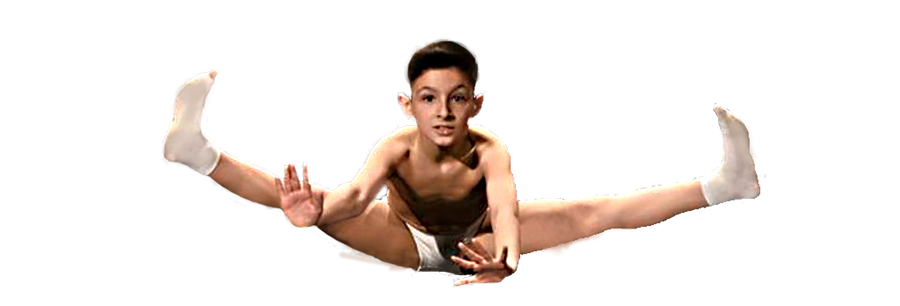
Autism: Autistic Concert Pianist
Derek Paravincini, Autistic and Premature

Born three and a half months prematurely, Derek Paravicini is blind but has literally become an Autistic Concert Pianist. But with perfect pitch, innate talent and a lot of practice, he became a concert pianist by the age of 10. Here, his longtime piano teacher, Adam Ockelford, explains his student’s unique relationship to music, while Paravicini shows how he has ripped up the “Chopsticks” rulebook.
Derek Paravicini weighed half a kilogram when he was born, prematurely at just 25 weeks. Growing up blind and with severe autism, Paravicini had trouble communicating, but was fascinated by sound. He began teaching himself how to play the piano and, by 4-years-old, had taught himself an incredible catalogue of songs that he played with unusual technique. Soon, Paravicini began studying with Adam Ockelford, a teacher at the Linden Lodge School for the Blind in London, who saw in him the marks of a highly inventive musician. Paravicini gave his first concert at age 7 and, two years later, played the Barbican Hall.
TV and Stage
Once a child prodigy, he’s matured into a creative musician, able to reimagine songs in ways few can. Now in his thirties, Paravicini has continued to grow as a performer, with the ability to reimagine complex pieces of music even after only hearing them once. He was featured in the series Extraordinary People in the United Kingdom and, in the United States, on Stan Lee’s Superhumans, which verified his musical ability and confirmed his savantism. Paravicini has also worked with composer Matthew King. The two have played improvised pieces on BBC Radio and collaborated on Blue, the first concerto ever composed for someone with learning impairment. Autistic Concert Pianist indeed!
ADHD and Puberty – Part Two

Hyperactivity and Puberty – “ADHD on Testosterone”

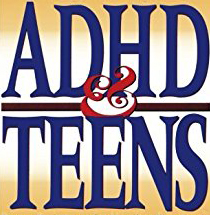
The same holds true from my extensive series of articles about puberty—I didn’t mention how it is effected or even altered by hyperactivity. Read more →
Childhood Diabetes Update
Although, as explained, personal issues prevent me from posting as regularly as I have always done; none-the-less, I still try to keep up with the new developments in pediatrics and one such area is Diabetes in childhood.
I’ll try and update several “discoveries” related to “Diabetes” in the pediatric population that should be posted in this site: 1 – New naming conventions; 2 – that adolescent diabetes is much more refractory to treatment than we had thought; and, 3 – that the FDA has now approved the “artificial pancreas” for use in children with “type 1” diabetes.
Read more →
The Charles Bonnett Syndrome: An Under-reported Phenomenon
Visually Impaired and Charles Bonnett
Psychiatrist Oliver Stacks Explains
The relaxed demeanor of Dr. Stacks is easy to understand when he explains the unease experienced by patients who are loosing their sight when they see something that isn’t there—the hallucinations of the Charles Bonnett Syndrome give fears of “loosing one’s mind” or other conditions such as Alzheimer’s.
Most have heard about the “phantom limb syndrome” experienced by individuals who have lost a limb; but, almost no-one has heard of that happening when sight is lost, although it does.
Dr. Stacks explained how the phenomenon was first seen and described in the literature by Dr. Charles Bonnett (hence the syndrome’s name) when his father lost his sight. It now has been described as a “not rare” occurrence in people whose vision is becoming impaired not just those who are blind.
There is a “comfort,” of sorts, from knowing that there is a name for what is happening, that it’s “normally” seen and not an additional problem and that it’s not a harbinger of something worse.
In addition, just knowing about it and learning about what makes it happen—who knows, might lead to one day being able to develop artificial eyes. Stranger things have happened.
As Much As You Want To Know About Autism – FIVE Videos
Autism Explanations
From Diagnosis to Treatment to Living With It
Carefully selected from the hundreds of videos about the subject of Autism, here are four others chosen for their clarity, succinctness yet completeness and amazing insight.
Faith Jegede Cole · Writer
Writer Faith Jegede Cole draws on her experiences growing up with two autistic brothers in order to spread awareness and understanding about this increasingly common diagnosis.
She says: “Don’t tell me I’m ‘normal'”, and thinks of her brothers not so much as ‘ordinary’ but extraordinary.
Steve Silberman · Writer and editor
Steve Silberman is a writer and contributing editor for “Wired” who covers science and society. His newest book explores neurodiversity and the link between autism and genius. He relates the history of the autism diagnosis; the Connors vs Asperger issue; and, implications for diagnosis and treatment.
Ami Klin · Autism researcher
Ami Klin is an award winning autism spectrum disorder researcher who explains why we need to find new avenues for early diagnosis and what he and others are doing about it.
Temple Grandin · Livestock handling designer, autism activist
Through groundbreaking research and the lens of her own Asperger’s, Temple Grandin brings startling insight into two worlds.
She makes the case that the world needs people on the autism spectrum: visual thinkers, pattern thinkers, verbal thinkers, and all kinds of smart geeky kids.
Her insight: “…Einstein, Mozart, tesla would all be diagnosed as having ASD today… attends to detail… I think in pictures… one of the things that worries me is where are the younger versions of these people going today – they’re not ending up in silicon valley where they belong… if you got rid of all the Asperger’s there would be no silicon valley.”
“Is it unrealistic to think that their child loves them? Let me tell you that that child would be loyal, if your house was burning down they’re gonna get you out of it.”
ADHD: Treatment Followup – Lifelong Learning
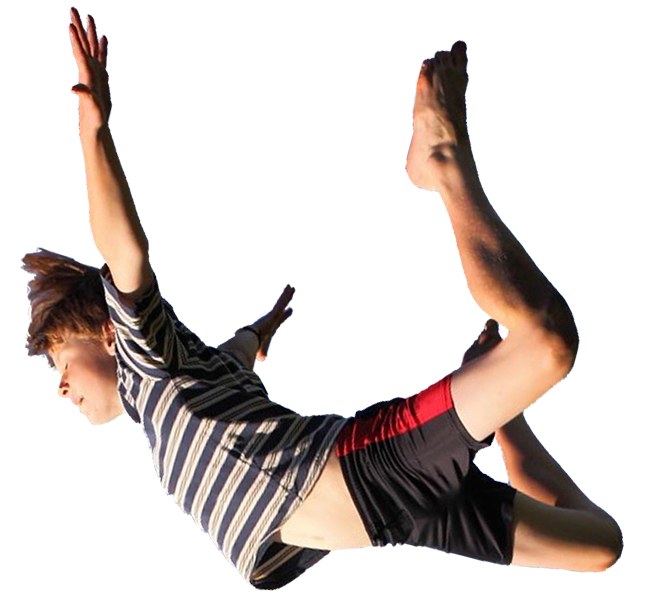
ADHD, Hyperactivity: Don’t JUST Take My Word For It →
Fussing around trying to find photos to accompany my many posts in the series about ADHD and hyperactivity, I stumbled upon a great article from one of the most “down home” type physicians on the internet, Greg Barrett MD. A professor at a prestigious college, this guy has won many awards from his medical students for just “plain talk” and “making sense”—along with the overall kindness usual with a Pediatrician. Here is a link to his article about ADHD entitled “Errors of commission and omission.”
Hyperactivity Treatment: Cognitive Training, Medication or Both
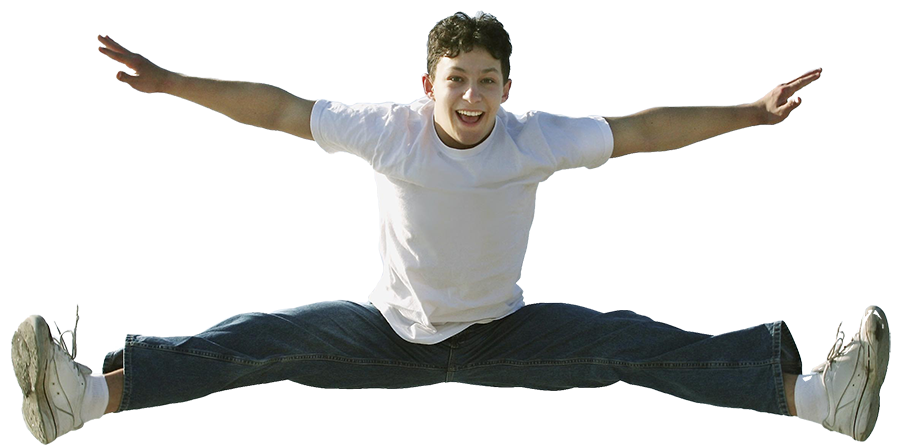
Hyperactivity Treatment: What Really Works… Really


